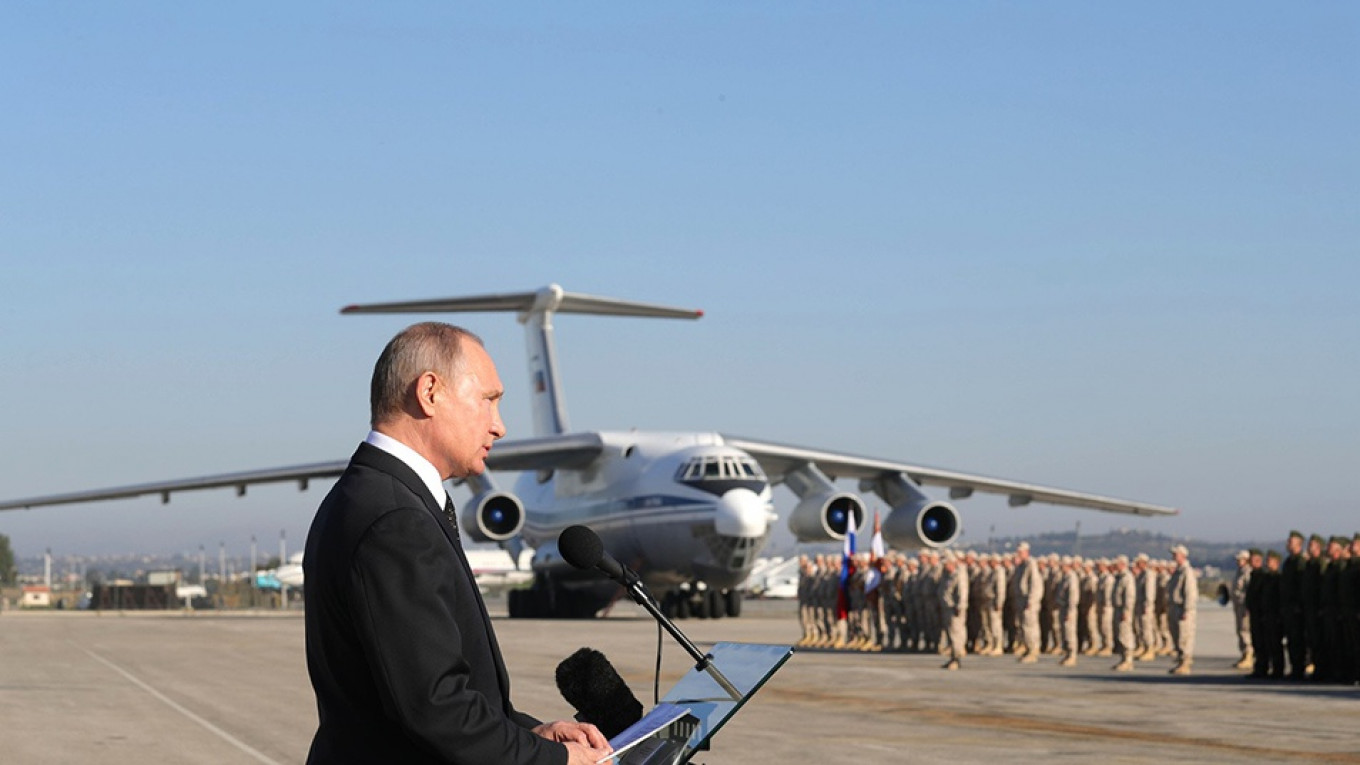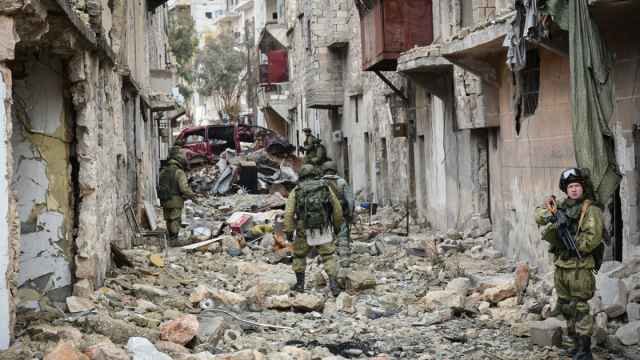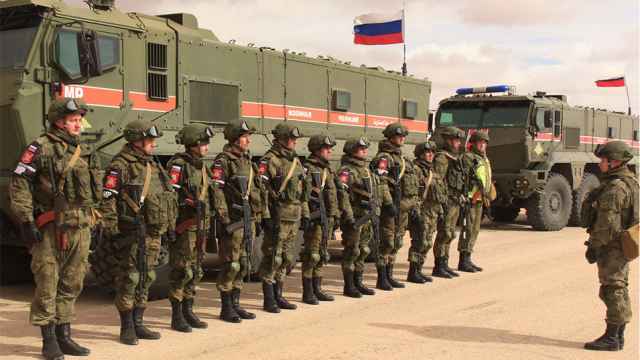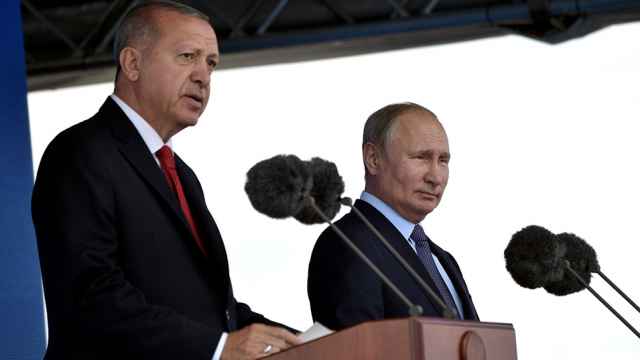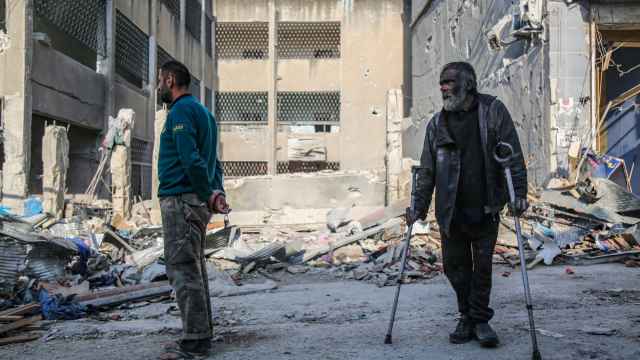President Vladimir Putin and Turkish president Recep Tayyip Erdogan met in the southern Russian city of Sochi this week to try to find a solution to the Idlib problem. Exactly what to do with the province in northern Syria, which is the last stronghold of rebels opposed to President Bashar Assad, has also been a sticking point between his allies, Russia, Iran and Turkey.
Idlib is the last bastion of an extremely complex web of militias, some of which form the so-called Hayat Tahrir Al Sham, a rebranded successor of Al Nusra Front that traces its origin to Al Qaeda. Others there are backed by Turkey.
Previous efforts to solve the crisis, including the latest Astana process meeting which gathered the leaders of Iran, Russia and Turkey in Tehran in early September, failed to find a solution. And the fact there had yet to be a breakthrough had taken its toll on the ties between Assad’s allies.
The failed meeting earlier in September deepened Russian and Turkish suspicion that the Syrian and Iranian forces amassed at the border of the Idlib would go ahead with a large-scale offensive that could spark a massive humanitarian crisis in a province that reportedly is home to about 3 million civilians.
Putin and Erdogan’s meeting in Sochi was their second attempt to come to an agreement on how to deal with the terrorist threat in Idlib, while salvaging the existing de-escalation zone. The fact the meeting was so hastily organized just days after the previous meeting reflects just how badly Russia and Turkey wanted to avoid a scenario in which Damascus would direct all its firepower towards Idlib.
Ankara’s primary interest was in averting a humanitarian crisis that would send hundreds of thousands of Syrian refugees towards the Turkish border, putting immense domestic political pressure on Erdogan.
Putin came to the meeting in Sochi with an entirely different goal. Over the last few months, Russia has been actively promoting a new narrative on Syria, one in which the war is over and the process of finding a political settlement is in full swing. A military operation in Idlib, which would unfold on a scale unseen even in Aleppo, would have been a disaster for Russia’s narrative.
So too would a battle undermine Russia’s plan to return refugees to Syria, which Moscow wants to present as being stable and peaceful. By extension, it would have made reconstruction funds that Russia hopes to unlock unattainable.
Perhaps most importantly, this operation would have dealt a fatal blow to the Russia-Turkey partnership, and, as a consequence, left Russian political initiatives, such as the drafting of the Syrian constitution, without vital Turkish support.
The deal that Putin and Erdogan struck in Sochi is a win-win arrangement for Moscow and Ankara. Its benefits for Syria, however, are questionable. The demilitarized zone that Putin and Erdogan undertook to establish essentially cements Ankara’s control over Idlib, creating an exclave similar to the Euphrates Shield area, which Turkey occupies. It’s worth mentioning that this carving up of the north of the country contradicts Russia's mantra on the territorial integrity of Syria.
In the short term, however, this deal will help avert a full-scale Syrian offensive and maintain the illusion of calm in Syria, the deliverable on which Vladimir Putin and Recep Erdogan converge.
The seeming triumph of the Idlib deal was overshadowed by the incident over Syrian just one day after Putin and his Turkish counterpart met in Sochi. On Monday, a Russian IL-20 reconnaissance jet was shot down by Syria over the Mediterranean, killing all 15 on board. The incident occurred when an Israeli F-16 jet was on a mission to bomb a Syrian weapons production facility in Latakia province.
With the incident occurring just one day after the meeting in Sochi, the shoot-down was an inconvenient disruption to the cozy Syrian peace narrative pedaled by the Russian leadership and media. It exposes that the Syrian war is far from over, that coordination between Russia and its allies is extremely weak and most importantly that the Syrian government is still very much on the defensive.
The most surprising part of the incident, that took place over Syria is Russia’s reaction that was incoherent at best. Following the shoot-down the Russian Defense Ministry came out with harsh criticism of Israel accusing the F-16 pilot of using the Russian reconnaissance jet as a shield and pushing it into the line of Syrian fire.
The Russian President, however, took a conciliatory stance on the incident merely reducing it to a “chain of tragic circumstances,” a position that does not square up with serious accusations leveled against Israel by Defense Ministry spokesman Igor Konashenkov. With diplomats from both sides surprisingly keeping mum on the incident, Putin’s intervention in what could have snowballed into a full-blown diplomatic crisis shows that the Russian-Israeli partnership hinges on a personal chemistry between Putin and Prime Minister Benjamin Netanyahu and is at best situational when it comes to the Syrian battlefield.
These developments in Syria are a bitter reality check for Russia. As Moscow struggles to keep its stability narrative on Syria from falling apart, the war rages on. In a rush to engineer a political solution to the crisis, Moscow is finding it increasingly hard to keep both its allies and opponents in line.
Yuri Barmin is a researcher on the Middle East and Russia's policy towards the region and an expert at the Russian International Affairs Council. The views and opinions expressed in opinion pieces do not necessarily reflect the position of The Moscow Times.



